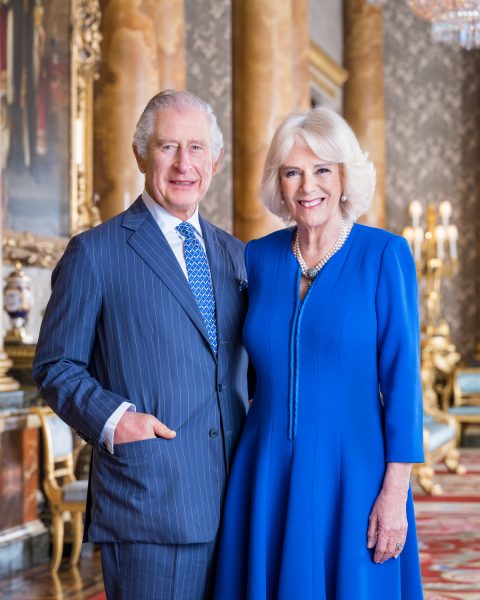
King Charles coronation to break tradition, embrace Britain’s multi-faith inclusivity
The May 6 event will see members of various faiths attend the ceremony, including Jews, Muslims, Hindus, Sikhs, and Buddhists

The coronation of King Charles III on May 6 will have all the elements of a 1,000 years of tradition, pomp and symbolism — something that the British monarchy excels at — but it will also have an additional new dimension that will bring the ceremony into the 21st century. The impeccably choreographed spectacle will have inclusivity, a rare commodity in today’s world.
In an unprecedented twist and at the behest of the new king, the coronation will acknowledge that Britain is no longer an exclusive Christian country but a multi-faith nation. For the first time in British history, members of all faiths will play an active part in the ceremony which has been an essentially Protestant service since the 16th century.
Watch | King Charles III: Prince of Wales to King of Britain | The Federal History
Representatives from the Jewish, Sunni and Shiite Muslim, Hindu, Sikh, Buddhist, Jain, Bahai and Zoroastrian communities will be the first in the procession to enter Westminster Abbey on the morning of the coronation.
Presentation of the Sovereign’s Ring
During the service, four peers from the House of Lords — a Hindu, Muslim, Sikh and Jew — will hand objects of the royal regalia to Charles. Lord Narendra Babubhai Patel, a Hindu, will present the Sovereign’s Ring to the King; Lord Indrajit Singh, the 90-year-old Sikh peer, will give the Coronation glove to Charles; Lord Syed Kamall, a Muslim of Indo-Guyanese heritage, will hand over the Armills (bracelets) and Baroness Gillian Merron, a Jew, will carry the Robe Royal to the King.
Watch: Ancient precious regalia used in Coronation of King Charles III
Rishi Sunak, a practicing Hindu, will also make history when he gives a reading from St. Paul’s letter to the Colossians during the ceremony. However, he has been chosen for the reading not as a representative of the Hindu community, but because of his position as the prime minister of the country. Recently, it has become a tradition for British Prime Ministers to give readings at services of State occasions such as Queen Elizabeth II’s funeral last September.
Finally, at the end of the ceremony, the King will receive a “spoken greeting in unison” — not a prayer — from religious leaders of other faiths.
A ‘defender of faith’
All the changes have been brought in, thanks to Charles, who has had a lifelong fascination with other religions. Unlike the late queen who was a devout Christian, Charles had said in an often-cited documentary made in 1994 that he preferred to embrace all religious traditions and “the pattern of the divine, which I think is in all of us”.
Opinion: The Queen is dead; British soft power remains globally all-pervasive
Queen Elizabeth II and all other British monarchs before her going back 500 years had vowed to serve as the ‘Defender of the Faith’, as Supreme Governor of the Church of England. Ironically, the title of ‘Defender of the Faith’ was bestowed on King Henry VIII in 1521 by Pope Leo X for his defence of Catholicism. However, when Henry broke with the Catholic Church so that he could divorce his first wife Katherine of Aragon and marry Anne Boleyn, he held on to the title, but was now defending the Anglicanism of the Church of England.
Charles, as the heir to the throne, had said in the past that he felt more a “defender of faith” rather than “the faith”. “People have fought to the death over these things, which seems to me a peculiar waste of people’s energy, when we’re all actually aiming for the same ultimate goal,” said Charles in the documentary.
Through close consultations with the Archbishop of Canterbury, Justin Welby, the senior most cleric of the Anglican church, Charles has managed to put his personal stamp on the rituals for the coronation ceremony that are embedded in centuries of canonical law and traditions. While the King will vow to serve as “Defender of the Faith”, he will also pledge “to seek to foster an environment in which people of all faiths and beliefs may live freely”.
The 1953 coronation
In 1953, when the last coronation took place, Britons were predominantly Christian. However, 70-years later, the UK is home to 3.9 million Muslims, 1 million Hindus, 5,24,000 Sikhs, 2,98,000 Jews and 2,73,000 Buddhists. Though all the other faiths still only make up a small minority of the 67 million total population of the kingdom, it goes to Charles’s credit that he would like a service that reflects the diversity of contemporary British society.
Also read: King Charles III faces several challenges as new reign begins
In fact, the Royal Mail has issued a new postage stamp to mark the coronation, which features a Hindu, Muslim, Sikh and Jewish figures with a mosque, temple, gurdwara and synagogue in the background.
By celebrating Britain’s multi-ethnic, multi-faith, multi-cultural society, King Charles has also angered some right-wing monarchists, who feel the coronation has been turned into a festival of ‘wokery’. With many of the pivotal roles going to trailblazers in gender and racial equality, the monarchists have threatened that ‘the King ignores us at his peril’.


